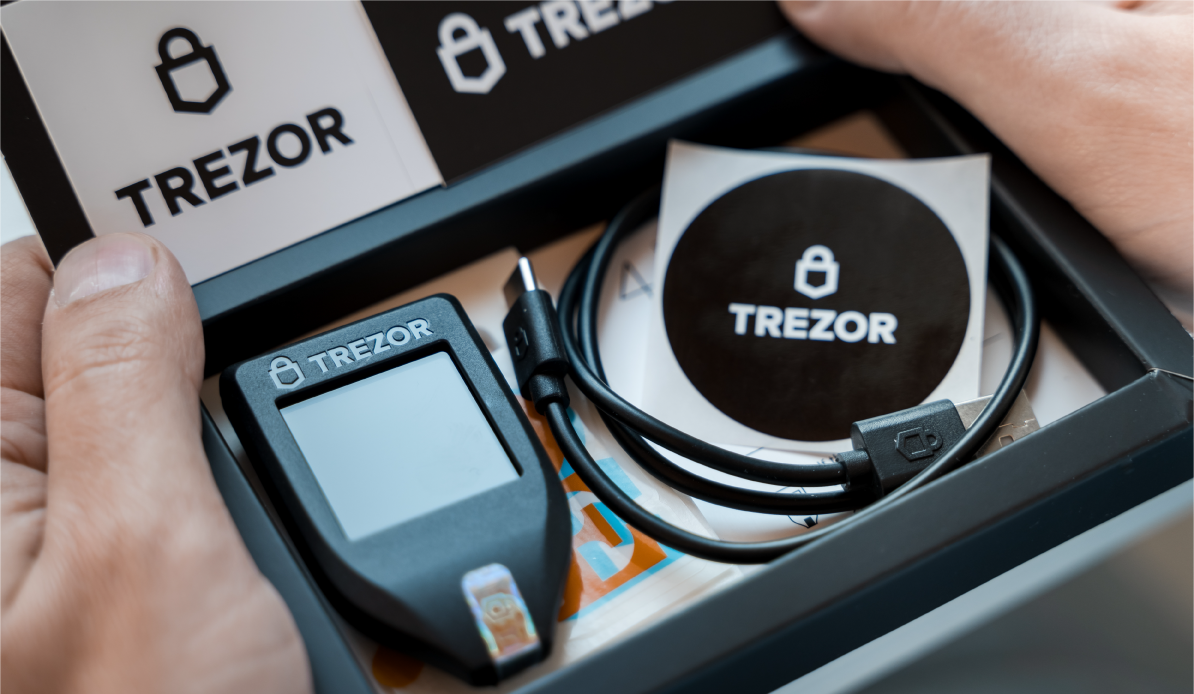In the fast-evolving world of cryptocurrency, the security of your digital assets is paramount. As crypto enthusiasts and investors, the decision to choose the right storage solution for your holdings is crucial. Two prominent options that stand out are crypto cold storage, represented by hardware wallets like Ledger Nano X, Trezor Model T, BitBox02, and other reputable devices, and hot wallets. In this article, we will delve into the debate surrounding crypto cold storage versus hot wallets, helping you make an informed choice to secure your cryptocurrencies.
The Basics: Crypto Wallets
Before diving into the cold storage vs. hot wallet comparison, let's establish a common ground by understanding what crypto wallets are. Crypto wallets are digital tools that allow you to send, receive, and store your digital assets, such as Bitcoin, Ethereum, or other cryptocurrencies.
Hot Wallets:
Hot wallets, as the name suggests, are always online and connected to the internet. These can be in the form of web wallets, mobile wallets, or desktop wallets. They offer quick and convenient access to your crypto holdings, making them suitable for everyday transactions. Examples of hot wallets include software wallets like Exodus, Electrum, and mobile wallets like Coinbase or Trust Wallet.
Cold Storage (Hardware Wallets):
Cold storage refers to keeping your crypto offline, away from the internet, and therefore, secure from online vulnerabilities. Hardware wallets are the most popular choice for cold storage. Prominent brands like Ledger Nano X, Trezor Model T, BitBox02, and others provide physical devices that store your private keys offline.
Cold Storage: The Fort Knox of Crypto Security
Cold storage is renowned for being the Fort Knox of crypto security. Here's why crypto investors trust it:
1. Air-Gapped Security: Hardware wallets, such as Ledger Nano X, Trezor Model T, BitBox02, and more, are air-gapped, meaning they are not connected to the internet. This isolation makes it nearly impossible for hackers to access your assets.
2. Physical Ownership: With a hardware wallet in hand, you physically own your crypto keys. No one else has access to them. This is in stark contrast to hot wallets, where the service provider manages the keys on your behalf.
3. Immunity to Online Threats: Hot wallets are vulnerable to hacking, phishing, and malware attacks. Cold storage ensures your assets are safe from these online threats.
4. Offline Seed Phrase: When setting up a hardware wallet, you receive a seed phrase – a master key to your crypto holdings. Storing this offline in a secure location is vital for recovery in case of loss or theft.
Ledger Nano X: Advanced Security in Your Hands
The Ledger Nano X is a Bluetooth-enabled hardware wallet that provides exceptional security features. It offers robust support for numerous cryptocurrencies and is known for its user-friendly interface. With Ledger Live, you can easily manage your assets, ensuring your crypto remains under your control.
The AleX by Black Seed Ink is the only titanium storage container for the Ledger Nano series of wallets currently available on the market.
Trezor Model T: Open-Source Security
Trezor Model T is celebrated for its open-source nature and rigorous security measures. Some of its notable features include:
- Open Source: Trezor's firmware is open source, allowing the community to scrutinize and enhance its security features.
- Large Touchscreen: The Model T features a large, intuitive touchscreen that makes navigation and verification of transactions a breeze.
- Multicurrency Support: Trezor Model T supports a wide range of cryptocurrencies, making it a versatile choice for crypto enthusiasts.
BitBox02: Your Secure Crypto Companion
BitBox02 is recognized as one of the most affordable options for cold storage. With its focus on security and user experience, it has garnered a strong reputation in the crypto community.
Other Notable Hardware Wallets
Apart from Ledger Nano X, Trezor Model T, and BitBox02, there are other reputable hardware wallets in the market. These include:
- Ledger Nano S: The predecessor to the Nano X, offering excellent security for a wide range of cryptocurrencies.
- KeepKey: Known for its sleek design and user-friendly interface.
- Coldcard: An open-source Bitcoin hardware wallet with a focus on Bitcoin security.
- Ellipal Titan: A fully air-gapped and mobile-supported hardware wallet.
Hot Wallets: The Convenience Factor
Hot wallets are the go-to choice for individuals who engage in frequent crypto transactions. Here's why:
1. Accessibility: Hot wallets are readily accessible and user-friendly. They are ideal for daily crypto use and trading.
2. Multi-Device Compatibility: Hot wallets often offer multi-device compatibility, allowing you to access your holdings from various platforms.
3. Instant Transactions: You can execute transactions instantly with hot wallets, making them a convenient choice for active traders.
Making the Choice
The choice between crypto cold storage and hot wallets ultimately depends on your specific needs and preferences. If you prioritize top-tier security and long-term storage, a hardware wallet like Ledger Nano X, Trezor Model T, BitBox02, or other reputable devices is the ideal choice. These devices offer unparalleled protection and peace of mind for your crypto assets.
On the other hand, if you require quick and easy access to your holdings for day-to-day transactions, hot wallets are the way to go. Popular hot wallets like Coinbase and Trust Wallet are tailored for user-friendliness and accessibility.
In conclusion, crypto storage is not a one-size-fits-all solution. It's crucial to weigh the security of cold storage against the accessibility of hot wallets and decide which one aligns best with your crypto needs and investment strategy.
Education only, entertainment only, not financial advice.



